Coronavirus: Recent falls in vaccine hesitancy plateau in the last month despite outbreaks
The NSW Covid-19 outbreak and lockdowns around the nation have not been enough to drive down vaccine hesitancy.
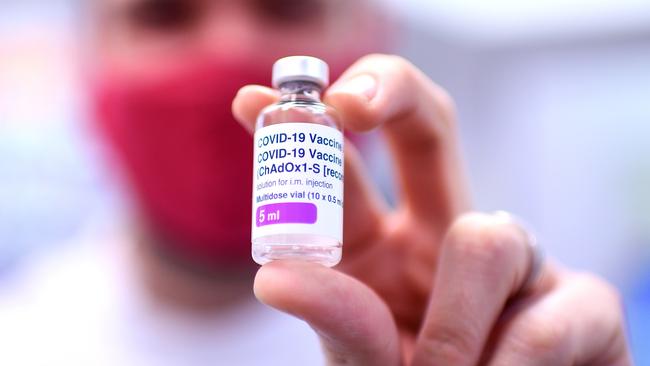
Vaccine hesitancy is no longer falling despite the ongoing severity and spread of the NSW outbreak and lockdowns imposed on millions of Australians.
New survey data recorded last week shows vaccine hesitancy across the nation now sits at 21.8 per cent of the population, slightly up on 21.5 per cent in late July.
And in NSW, which on Thursday reported another 345 confirmed cases of the virus and placed more regions into hard lockdown, the proportion of vaccine hesitant people rose from 14.6 per cent on July 23 to 17.3 per cent.
The Melbourne Institute’s fortnightly Vaccine Hesitancy Report, which tracks how many Australian adults are either unwilling to be vaccinated or are unsure about it, reveals that while hesitancy has been falling nationwide since peaking mid-May at 35 per cent, it appears to have plateaued in the last month.
At no time since the survey began in December last year has the proportion of vaccine hesitant Australians fallen below 20 per cent.
Despite Australia hitting the halfway point (14.4 million vaccinations) in terms of jabs needed to reach the government’s first target of 70 per cent vaccination coverage, the stubborn level of continuing vaccine hesitancy puts a serious question mark on whether it can get there, and beyond to the second target of 80 per cent.
Only in Queensland, which has seen cases as far afield as Cairns, has vaccine hesitancy fallen in the last couple of weeks, albeit off a high base, from 30.8 per cent to 26.8 per cent.
South Australia saw vaccine hesitancy rise from 23.9 per cent in late July to 26.3 per cent by August 7, while Victoria and WA remained the same, at 23.6 per cent and 21 per cent respectively.
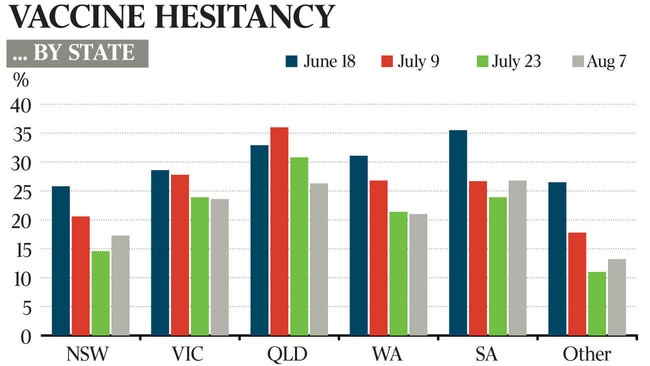
The findings are based on responses from 1200 Australians each fortnight through the Melbourne Institute’s Taking the Pulse of the Nation survey.
They reveal significant disparities by age, with vaccine hesitancy much higher among younger Australians (30.2 per cent for 18-44 year olds), compared with 45-64 year-olds at 17.2 per cent and 65+ at 7.6 per cent.
The survey finds the main concerns of the vaccine hesitant are the effectiveness and safety of the vaccine (59 per cent) and lack of trust in the vaccines (39 per cent). These have remained top of mind since February.
The Melbourne Institute survey also finds that “between 40 and 50 per cent of those hesitant to get vaccinated are unlikely to change their minds even when facing the possibility of the unvaccinated getting banned from participating in various activities.”
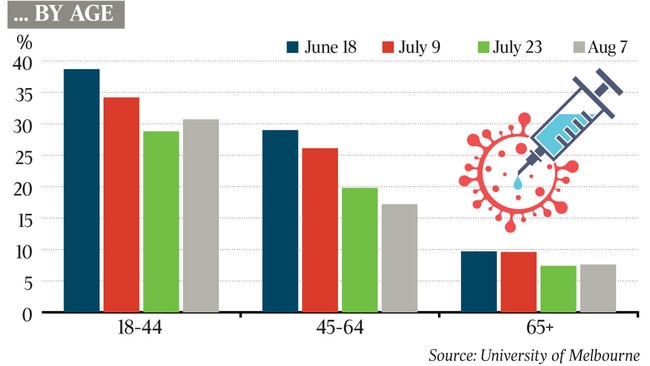
Melbourne Institute Professor Anthony Scott, the report’s author, said it was problematic that the level of vaccine hesitancy in Australia remained stuck above 20 per cent.
“It is worrying that we might be starting to see a plateau in these numbers,” Professor Scott said.
“Given the reasons for the hesitancy have been the same for some months, that is the safety and effectiveness of the vaccines, there is clearly an issue about the messaging. It is not getting through.
“We’ve seen other countries plateau at vaccination rates around the 70 per cent mark, so it is difficult, but we need to ensure people are in receipt of clear, unbiased advice and information on vaccination,” Professor Scott said.



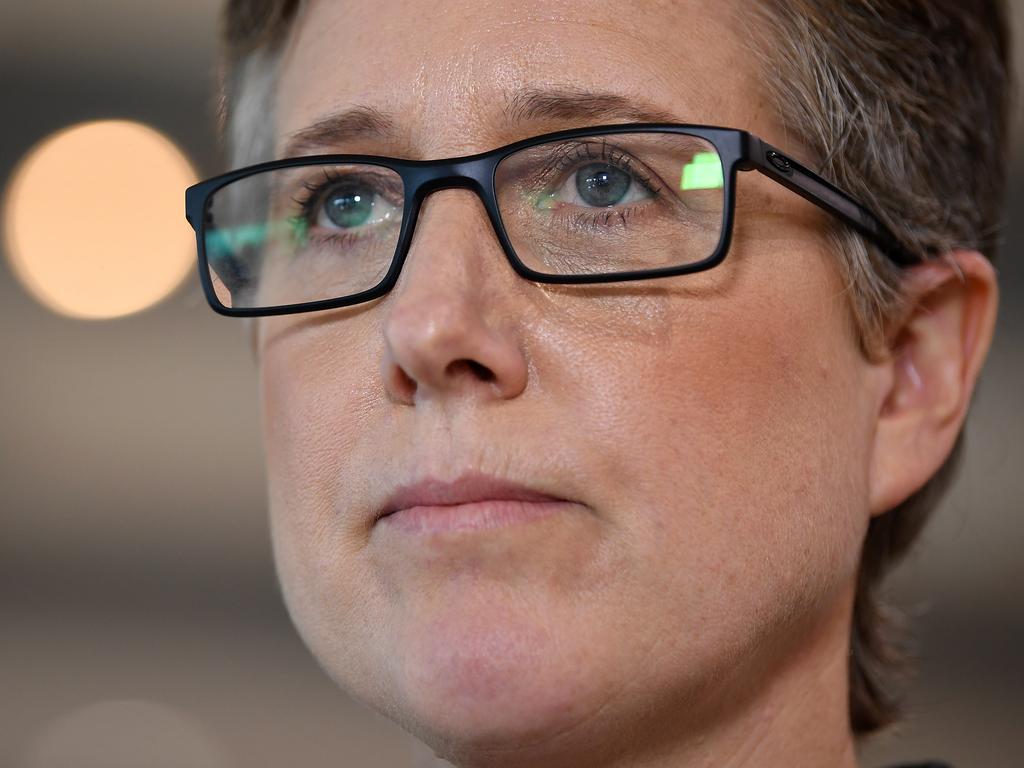
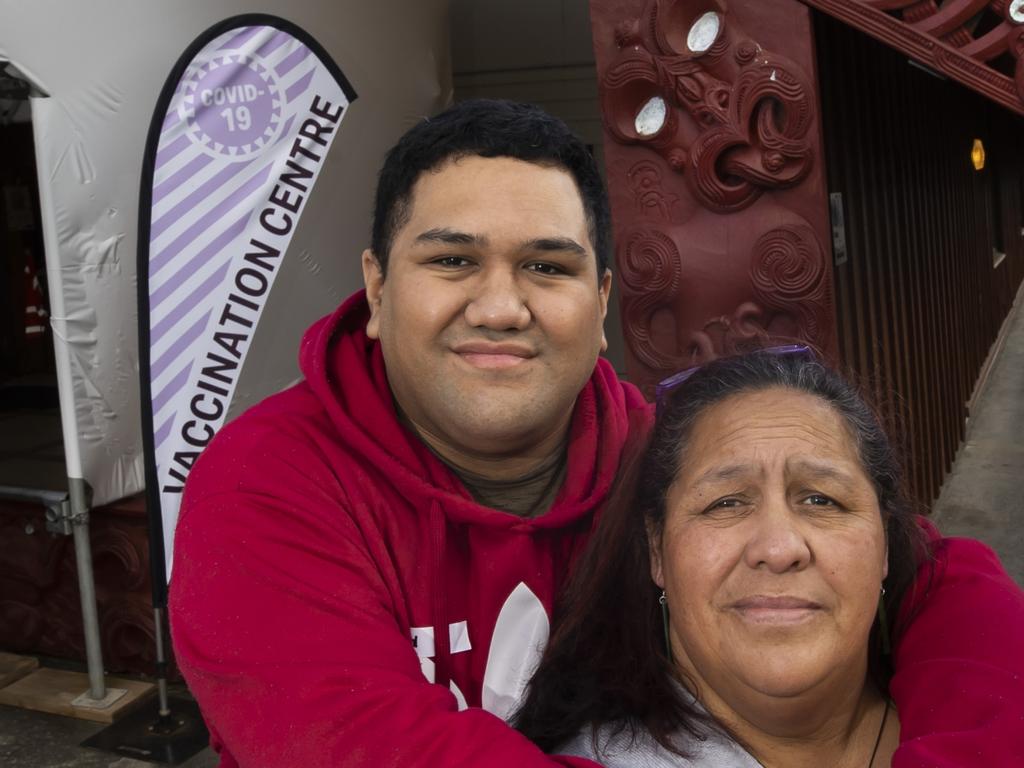



To join the conversation, please log in. Don't have an account? Register
Join the conversation, you are commenting as Logout